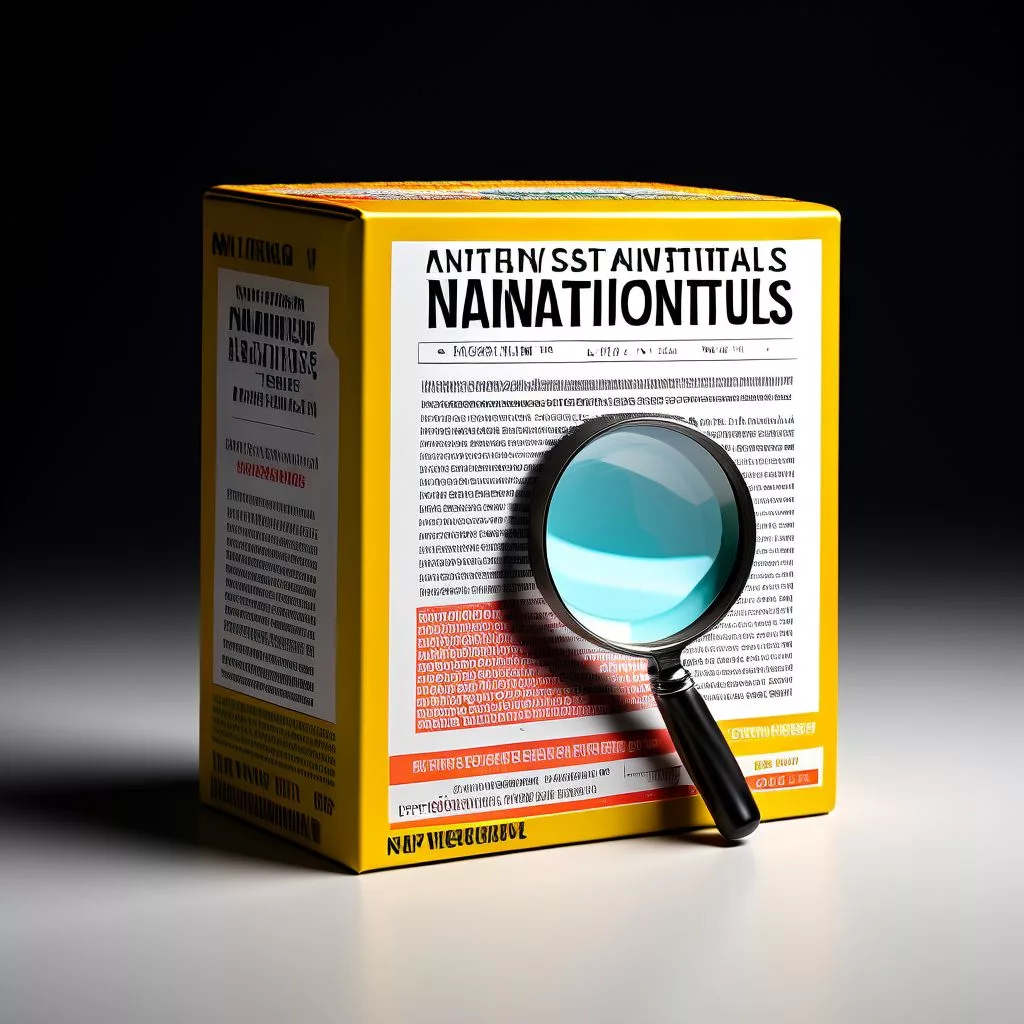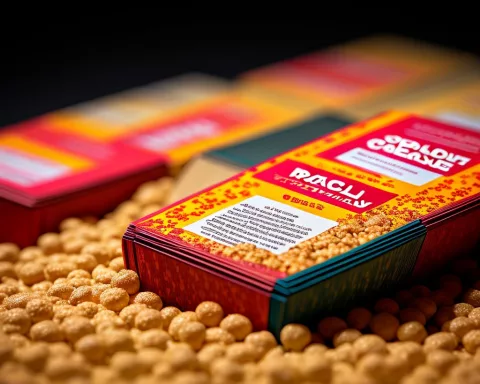Major supermarket chains like Shoprite and Checkers are recalling Heartland Foods cereals because some labels had wrong nutritional information. Even though they didn’t get any complaints, they want to be honest and keep customers safe. Shoppers can easily return the affected cereals for a full refund, no receipt needed! This recall shows how much these stores care about their customers and keeping food safe.
What prompted the recall of Heartland Foods cereals?
Major supermarket chains, including Shoprite and Checkers, initiated a voluntary recall of Heartland Foods cereals due to inaccurate nutritional labeling. This proactive measure, taken despite no consumer complaints, reflects their commitment to transparency, food safety, and consumer trust. Customers can return affected products for a full refund.
Supermarket Chains Take Action on Nutritional Labeling
In an age where transparency and accountability are crucial in consumer-market relationships, prominent supermarket chains including Shoprite, Checkers, Usave, and OK Foods have made a significant move to reinforce these principles. They recently announced a voluntary recall of all cereal products produced by Heartland Foods. This decision emerged after discovering inaccurate nutritional labeling on certain products, demonstrating the retailers’ dedication to responsible retail practices.
Shoprite’s statement emphasizes their proactive stance, despite the absence of consumer complaints. “While no complaints have been received in this regard, we take our responsibility to consumers seriously and have therefore, after numerous interventions with the supplier, decided to issue a voluntary product recall,” the statement reads. This action showcases their unwavering commitment to ensuring the integrity of the information communicated on product packaging.
The recall affects a wide range of products, including well-known cereal brands under the Heartland Foods umbrella. These brands include Corn Flakes, Bran Flakes, Muesli, and Instant Oats, marketed under various names such as Morning Mills, Ubrand, Housebrand, Ritebrand, and OK Foods. Additionally, Heartlands-branded Multi Grain Flakes, Crunchy Flakes, Wheaty Flakes, and Granola are also part of this recall.
An Effortless Return Process for Consumers
Ensuring a hassle-free experience for customers returning the affected products, the recall process has been designed to be straightforward and stress-free. Customers are encouraged to bring any affected cereals, whether opened or unopened, to their nearest Shoprite, Checkers, Usave, or OK Foods outlet for a full refund. Notably, the stores do not require proof of purchase for the returns, which significantly eases the process for consumers.
For those seeking assistance with the return process, a dedicated helpline at 0800 01 07 09 has been made available. This initiative highlights the supermarkets’ understanding of customer-centric service, prioritizing ease and convenience for their customers. The decision to allow returns without proof of purchase and the provision of a helpline for assistance mirrors the customer-first approach that has become a hallmark of successful modern retailing.
This move aligns with a broader trend in contemporary consumer culture, where transparency is a cornerstone of trust between consumers and retailers. Historically, the relationship between manufacturers and consumers has evolved significantly. The need for reliable information on product labels became apparent with the emergence of packaged foods in the early 20th century, marking a new era in consumer goods. This historical context underscores the importance of accurate nutritional information as a crucial element of consumer trust today.
Commitment to Food Safety and Regulatory Collaboration
The voluntary recall not only emphasizes the supermarkets’ dedication to food safety but also showcases their collaborative efforts with regulatory bodies. The statement from Shoprite underscores this commitment, stating, “We apologise unreservedly for any inconvenience caused. We are committed to maintaining the highest standards of food safety and our food scientists and technologists are working closely with the National Consumer Commission on this voluntary recall.” This collaboration ensures that the measures taken are thorough and effective, aiming to rectify the labeling inaccuracies and safeguard consumers moving forward.
Reflecting on the broader implications, this initiative by major supermarket chains signifies the evolving dynamics of the food retail industry. Consumers today demand a higher level of transparency and accountability from the brands they trust. This recall is more than a response to a specific issue—it’s a reaffirmation of the retailers’ commitment to these values.
From an artistic perspective, one might draw parallels between this proactive approach and the meticulous attention to detail seen in certain artistic movements. For instance, the precision and clarity demanded in accurate food labeling echo the principles of the Realism movement in art, where the goal was to represent subjects truthfully, without embellishment. Just as Realist artists strove to depict their subjects with honesty and integrity, so too do these retailers aim to provide their consumers with reliable and accurate product information.
The Role of Food Scientists and Technologists
The recall also highlights the critical role of food scientists and technologists in the modern food industry. These professionals work diligently behind the scenes, ensuring that products meet safety standards and that any discrepancies are swiftly addressed. Their role is indispensable in maintaining the integrity of the food supply chain, akin to the unseen yet crucial work of conservators in the art world, who preserve and maintain the quality of valuable works of art.
Moreover, this action speaks volumes about the supermarkets’ understanding of customer-centric service. The decision to allow returns without proof of purchase and the provision of a helpline for assistance mirror the customer-first approach that has become a hallmark of successful modern retailing. This focus on ease and convenience for the customer can be likened to the user-friendly advancements in technology and design, where the end-user experience is paramount.
In summary, the voluntary recall of Heartland Foods’ cereal products by major supermarket chains is a significant event that underscores the importance of transparency, accountability, and consumer trust in the food retail industry. It reflects the evolving expectations of consumers and the proactive measures that retailers are willing to take to meet those expectations. This recall is not just about correcting a labeling issue; it’s about reaffirming a commitment to the highest standards of food safety and customer service. Such actions build and maintain the trust that is essential for a healthy and dynamic marketplace, where consumers can feel confident in the products they purchase and the information provided to them.
“`markdown
FAQ
What caused the recall of Heartland Foods cereals?
The recall was prompted by the discovery of inaccurate nutritional labeling on certain Heartland Foods cereals. Major supermarket chains, including Shoprite and Checkers, chose to take this voluntary action to uphold transparency and consumer trust, even though no complaints had been received.
Which supermarket chains are involved in the recall?
The recall involves several major supermarket chains, including Shoprite, Checkers, Usave, and OK Foods. These retailers are working together to ensure that customers can return affected products easily.
What products are included in the recall?
The recall affects a variety of cereals produced by Heartland Foods. This includes popular brands such as Corn Flakes, Bran Flakes, Muesli, Instant Oats, Multi Grain Flakes, Crunchy Flakes, Wheaty Flakes, and Granola, marketed under names like Morning Mills, Ubrand, Housebrand, Ritebrand, and OK Foods.
How can customers return the affected cereals?
Customers can return any affected cereals—whether opened or unopened—to their nearest Shoprite, Checkers, Usave, or OK Foods location for a full refund. Notably, no proof of purchase is required, making the return process straightforward.
Is there assistance available for the return process?
Yes, a dedicated helpline has been established for customers needing assistance with the return process. Customers can call 0800 01 07 09 for help, ensuring a hassle-free experience when returning affected products.
What does this recall indicate about the supermarkets’ commitment to food safety?
The recall underscores the supermarkets’ dedication to food safety and transparency. By proactively addressing labeling inaccuracies and collaborating with regulatory bodies, the supermarkets aim to maintain the highest standards of consumer trust and product integrity.
“`












